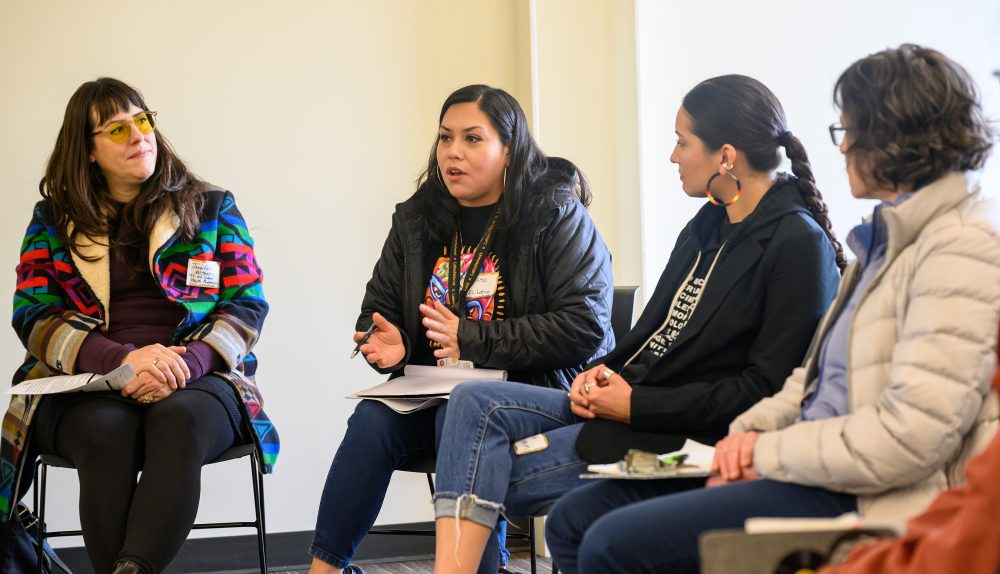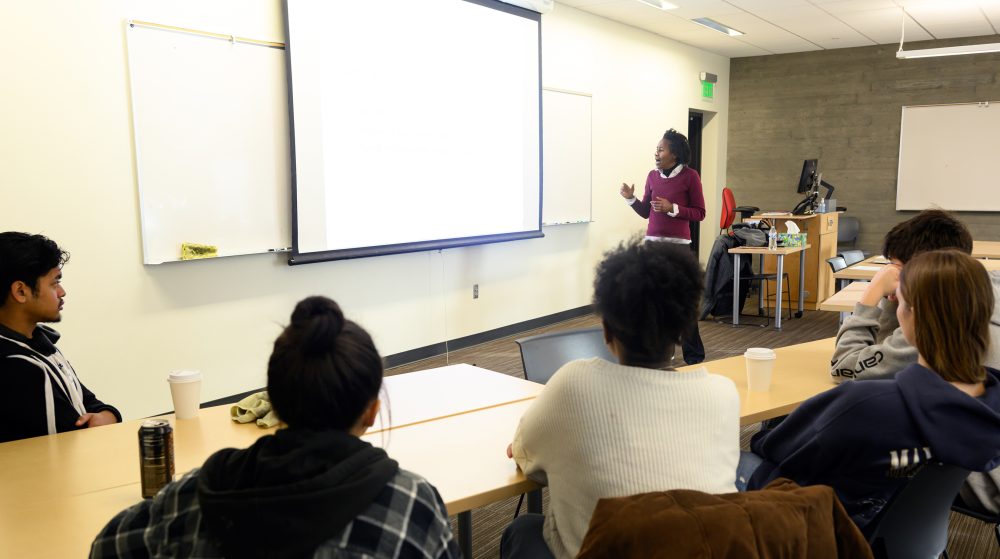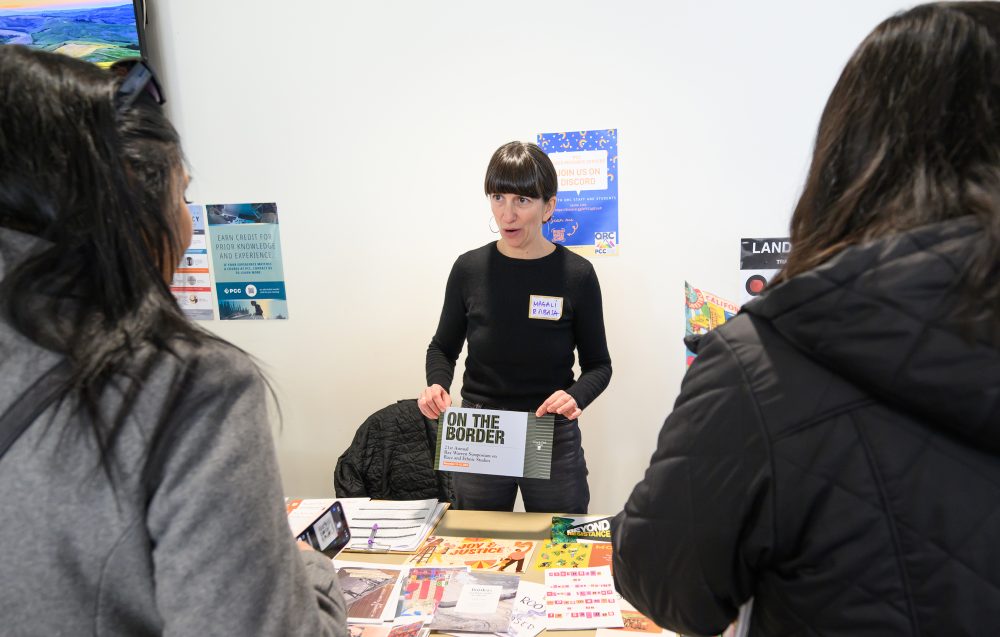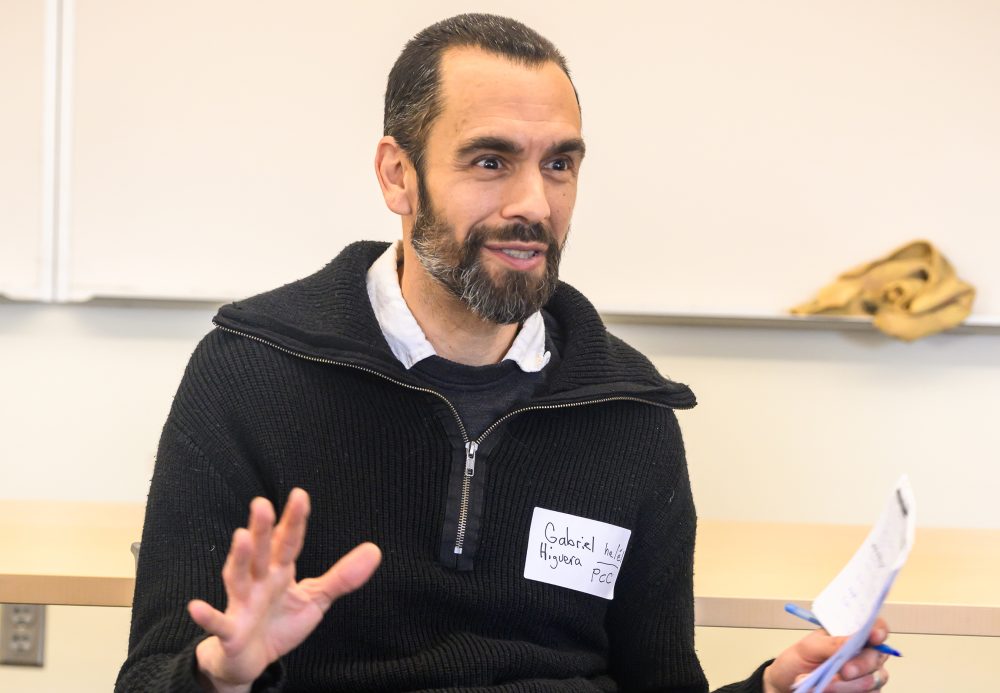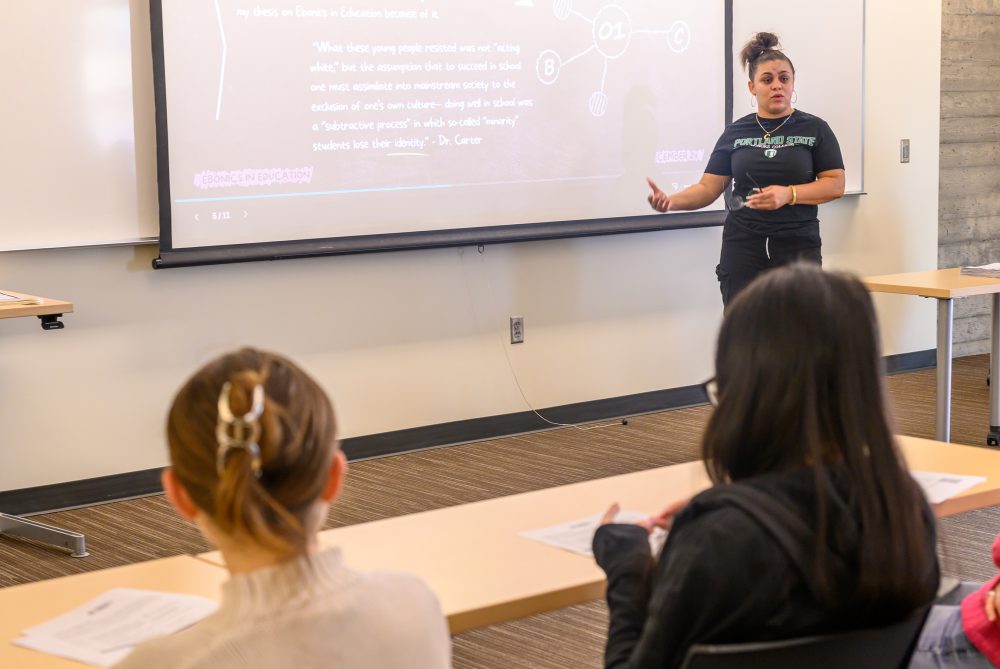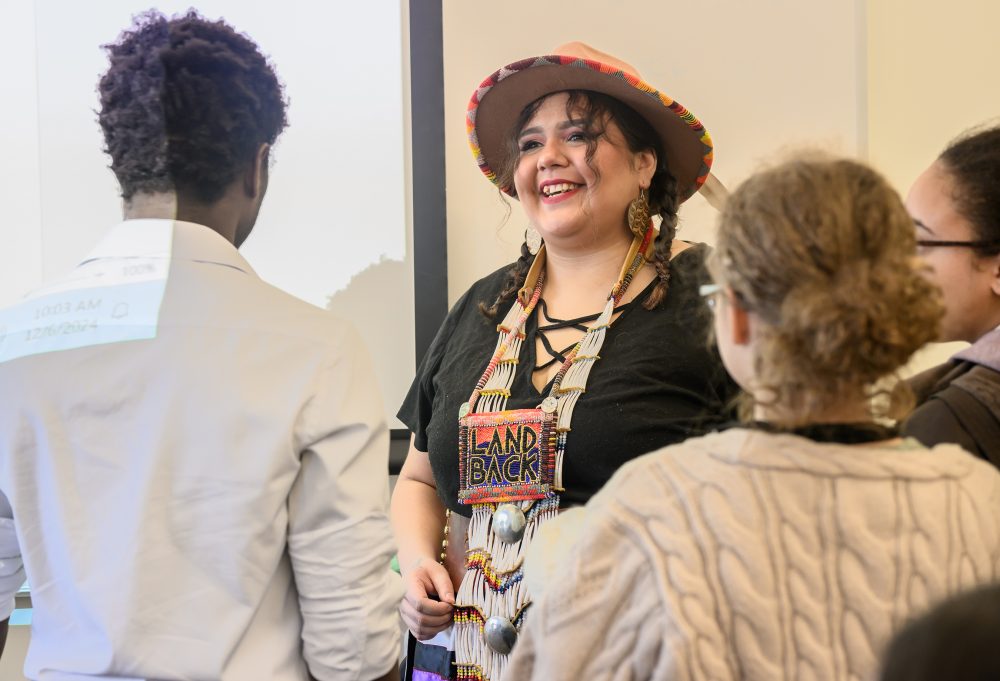Hundreds of middle and high school students make diverse connections at Ethnic Studies Youth Conference
Story by Misty Bouse. Photos by Ric Getter.
On Friday, Dec. 6, Portland Community College’s Cascade Campus hosted the 7th bi-annual Ethnic Studies Youth Conference, attracting approximately 150 middle and high school students from across the state. This gathering featured middle and high school student art, testimonies and research on today’s key issues attracting the next generation of educators.
“The focus of the conference is bridging communication between age groups, institutions, and geographies, to foster connections among diverse communities,” said Gabriel Higuera, an event organizer and a PCC Ethnic Studies Program instructor.
The bi-annual conference is designed as a platform for youth voices in a supportive environment and is funded by a grant from the Oregon Community Foundation.
Higuera directs the Critical Educators of Color Pathway (CECP) Program. He explained that this year’s youth conference covered a range of topics, including environmental justice, education, healthcare, women’s and LGBTQ+ rights, immigrant and refugee issues, education, art, youth rights, state violence, economic equity and white supremacy.
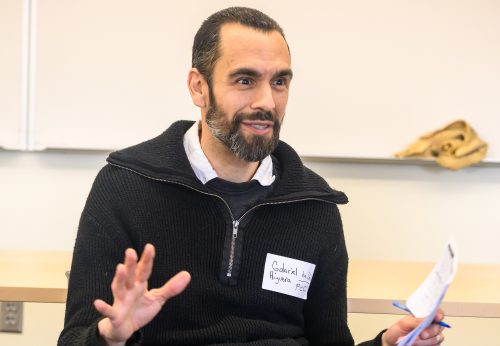
Gabriel Higuera said ethnic studies exists at PCC as a result of tireless advocacy on behalf of students and community leaders.
The students and their teachers shared research as local education officials and administrators learned more about what teachers, schools and districts are doing in terms of ethnic studies teaching and practice. In addition, community leaders and scholars shared their expertise connecting youth to organizations and movements.
“Ethnic studies exists at Portland Community College, as well as statewide, as a result of tireless advocacy on behalf of students and community leaders demanding an inclusive and honest education that does not center the experience of one particular group as reflective of the whole,” said Higuera.
The CECP, an initiative challenging the systemic exclusion of educators of color, offers courses and community work through the college. Grounded in ethnic studies, the program seeks to prepare critical educators to question and challenge oppressive systems that disproportionately affect minority communities.
PCC’s conference is timely, said Higuera, as Oregon is nearing the 2026 Ethnic Studies Standards mandate articulated in House Bill 2845. The law directs the Department of Education to convene an advisory group to develop statewide ethnic studies standards for adoption into existing statewide social studies standards for public kindergarten through grade 12.
For more information visit pcc.edu/programs/ethnic-studies/ or criticaleducators.org/

